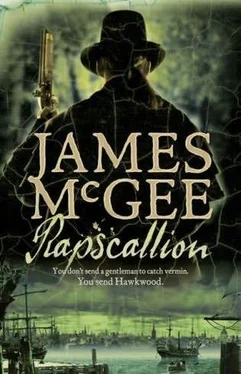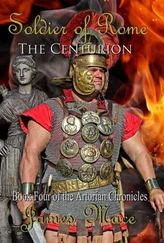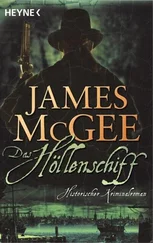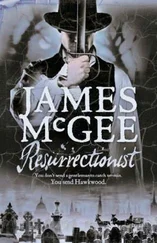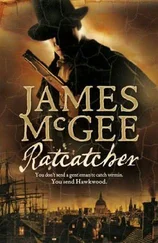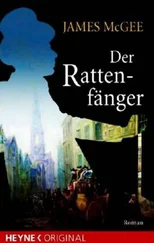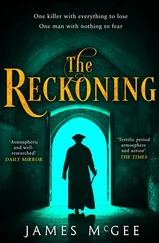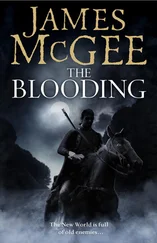James McGee - Rapscallion
Здесь есть возможность читать онлайн «James McGee - Rapscallion» — ознакомительный отрывок электронной книги совершенно бесплатно, а после прочтения отрывка купить полную версию. В некоторых случаях можно слушать аудио, скачать через торрент в формате fb2 и присутствует краткое содержание. Жанр: Исторический детектив, на английском языке. Описание произведения, (предисловие) а так же отзывы посетителей доступны на портале библиотеки ЛибКат.
- Название:Rapscallion
- Автор:
- Жанр:
- Год:неизвестен
- ISBN:нет данных
- Рейтинг книги:3 / 5. Голосов: 1
-
Избранное:Добавить в избранное
- Отзывы:
-
Ваша оценка:
- 60
- 1
- 2
- 3
- 4
- 5
Rapscallion: краткое содержание, описание и аннотация
Предлагаем к чтению аннотацию, описание, краткое содержание или предисловие (зависит от того, что написал сам автор книги «Rapscallion»). Если вы не нашли необходимую информацию о книге — напишите в комментариях, мы постараемся отыскать её.
Rapscallion — читать онлайн ознакомительный отрывок
Ниже представлен текст книги, разбитый по страницам. Система сохранения места последней прочитанной страницы, позволяет с удобством читать онлайн бесплатно книгу «Rapscallion», без необходимости каждый раз заново искать на чём Вы остановились. Поставьте закладку, и сможете в любой момент перейти на страницу, на которой закончили чтение.
Интервал:
Закладка:
"I do believe we've just been robbed," Lasseur said cheerfully, and then shrugged. "But it was neatly done. I can see we're going to have to keep our eyes on Lieutenant Murat. Did you ever have any dealings with his cousin?"
Hawkwood shook his head and said wryly, "Can't say I'm likely to, either, considering I'm an American and he's the King of Naples."
"I keep forgetting: your French is very good. Murat's cousin served in Spain, though."
"I know," Hawkwood said. "And your army has been trying to clean up his damned mess ever since."
Lasseur looked taken aback by Hawkwood's rejoinder. Then he nodded in understanding. "Ah, yes, the uprising."
It had been back in '08. In response to Bonaparte's kidnapping of the Spanish royal family in an attempt to make Spain a French satellite, the Spanish had attacked the French garrison in Madrid. Retaliation, by troops under the command of the flamboyant Joachim Murat, had been swift and brutal and had led to a nationwide insurrection against the invaders, which had continued, with the assistance of the British, ever since.
Lasseur gave a sigh. "Kings and generals have much to answer for."
"Presidents and emperors, too," Hawkwood said.
Lasseur chuckled.
The boy moved to the port and stared through the grille.
Hawkwood did the same. Over the boy's shoulder he could see ships floating at anchor and beyond them the flat, featureless shoreline and, further off, some anonymous buildings with blue-grey rooftops. He heard the steady tread of boot heel on metal. He'd forgotten the walkway. It was just outside the scuttles. He waited until the guard's shadow had passed then gripped the grille and tried to shake it. There was no movement. The crossbars were two inches thick and rock solid.
"Well, I doubt we'll be able to cut our way out," Lasseur said, running an exploratory hand over the metal.
"Planning on making a run for it?" Hawkwood asked.
"Why do you think I would never ask for parole?" Lasseur said. "You wouldn't want me to break my word, would you?" The Frenchman grinned and, for a moment, there was a flash of the man who had arrived in the gaol cell at Maidstone looking for a means to light his cheroot. He regarded Hawkwood speculatively.
"I'm still considering my options," Hawkwood said.
Lasseur chuckled.
The irony was that Lasseur wouldn't have been entitled to parole anyway, even if he hadn't already proved he was a potential escape risk by virtue of his earlier breaks for freedom.
There were stringent rules governing the granting of parole, which entitled an officer to live outside the prison to which he'd been assigned. It meant securing accommodation in a designated parole town, sometimes taking a room with a local family or, if possessed of sufficient funds, within a lodging house or inn. In return, the officer gave his word he would not break his curfew but would remain within the town limits and make no attempt to escape. The penalty for transgressing, if apprehended, was a swift return to a prison cell.
The rules were stricter for men like Lasseur. A privateer officer's eligibility for parole status depended upon the size of the vessel in which he'd been taken. If the ship was less than 80 tons and mounting less than fourteen carriage guns of at least four-pound calibre, he would not be accorded parole status. Lasseur's command, at 125 tons and mounted with six-pound cannon, qualified, but unfortunately for the privateer he had not been captured on his own vessel.
Lasseur's ship, Scorpion, was a ten-gun schooner and his eyes lit up whenever he spoke of her.
"She may not be the biggest vessel afloat, but she's as fast as the wind and her sting is deadly, and she's all mine." Lasseur had given a rueful mile. "And if I'd had her beneath my feet, we'd not be having this conversation."
Scorpion had been laid up in Dunkerque for repairs following a difference of opinion with a British fifth-rate on blockade patrol. On that occasion Scorpion had not been fast enough to avoid the British gun crew's aim, but with the aid of a convenient fog bank she had managed to give her pursuer the slip and make a successful run for home. While awaiting repairs, Lasseur had been talked into delivering dispatches between ports along the North French coast. His transport had been a two-masted caique or — as Lasseur had described it — a floating piece of excrement, and no match for the British sloop that had appeared out of nowhere and which, with a twelve-pounder carronade, had blown the caique's main mast and rudder into matchwood and taken her crew and temporary captain captive. Lasseur had told Hawkwood that he didn't know which would prove the most embarrassing experience, his capture or the ribbing he'd receive when he was reunited with Scorpion's crew: "They will make my life intolerable."
When Hawkwood hinted that any reunion was liable to be some way off, Lasseur had fixed him with a steadfast gaze. "They know I'm a prisoner. When I escape, I will send word and they will come for me."
Recalling Lasseur's words and watching him test the strength of the bars, it was hard not to admire the man's faith, though Hawkwood still couldn't help but feel that the privateer captain was being a tad over-optimistic. He wondered whether Lasseur, confronted with the reality of his incarceration, was secretly harbouring the same thought. If he was, the man gave no sign.
Hawkwood's musings were interrupted by a sudden warning shout, followed immediately by the clatter of boots on the stairs. The prisoners seated around the gun ports scrambled to put away their paper and pens. Standing up, they moved towards the centre of the hull. Not knowing why, Hawkwood, Lasseur and the boy followed suit and watched as a dozen guards wielding lanterns and iron bars, led by a bovine corporal, thrust their way on to the deck.
CHAPTER 4
"Here they come," a man next to Hawkwood muttered. "Sons of bitches!"
"What's happening?" Hawkwood asked.
The prisoner turned. His uniform hung off his bony frame. His hair was grey. A neat beard concealed his jaw. The state of his attire and the colour of his hair suggested he was not a young man, yet there was a brightness in his eyes that seemed out of kilter with the rest of his drawn appearance. He could have been any age from forty to seventy. He was clutching several books and sheets of paper.
"Inspection." The prisoner looked Hawkwood up and down. "Just arrived?"
Hawkwood nodded.
"Thought so. I could tell by your clothes. The name's Fouchet." The prisoner juggled with his books and held out a hand. "Sebastien Fouchet."
"Hooper," Hawkwood said. He wondered how much pressure to apply to the handshake, but then found he was surprised by the strength in the returned grip.
Fouchet nodded sagely. "Ah, yes, the American. I heard we had one on board. You speak French very well, Captain."
Jesus, Hawkwood thought. He didn't recall seeing Fouchet in the vicinity of the weather-deck when his name had been registered. Word had got round fast.
"How often does this happen?" Hawkwood asked.
"Every day. Six o'clock in the summer, three o'clock in the winter."
The guards proceeded to spread about the deck. There was no provision made for anyone seated on the floor, nor for the items upon which they might have been working. Hawkwood watched as boot heels crunched down on to ungathered chess pieces, toys and model ships. Ignoring the protestations of those prisoners who were still trying to retrieve their belongings, the guards proceeded to tap the bulkheads and floor with the iron clubs. When they got to the gun ports they paid close attention to the grilles. The deck resounded to the sound of metal striking metal. Hawkwood wondered how much of the guards' loutish behaviour was for effect rather than a comprehensive search for damage or evidence of an escape attempt. Not that the strategy was particularly innovative. It was a tried-and- tested means of imposing authority and cowing an opponent into submission.
Читать дальшеИнтервал:
Закладка:
Похожие книги на «Rapscallion»
Представляем Вашему вниманию похожие книги на «Rapscallion» списком для выбора. Мы отобрали схожую по названию и смыслу литературу в надежде предоставить читателям больше вариантов отыскать новые, интересные, ещё непрочитанные произведения.
Обсуждение, отзывы о книге «Rapscallion» и просто собственные мнения читателей. Оставьте ваши комментарии, напишите, что Вы думаете о произведении, его смысле или главных героях. Укажите что конкретно понравилось, а что нет, и почему Вы так считаете.
